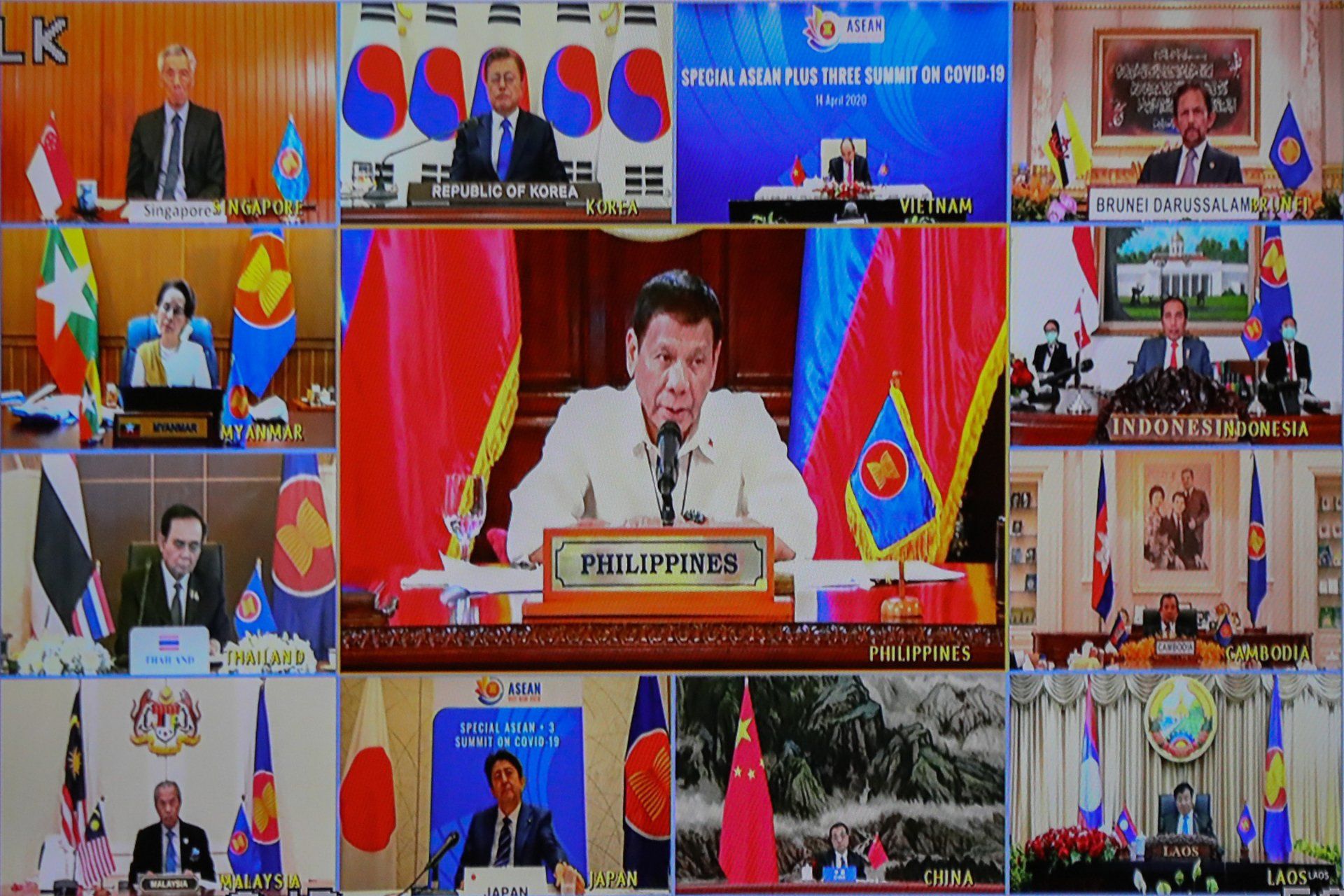AdvocatesTV • April 17, 2020
COHESIVE AND RESPONSIVE | ASEAN LEADERS SUPPORT THE ESTABLISHMENT OF COVID-19 RESPONSE FUND

Photo Credit: Presidential Photographers/PCOO
With over 20,000 people infected with COVID-19 within the region, South East Asian leaders sought to establish the ASEAN COVID-19 response fund to help member states mitigate the effects of the pandemic.
In a joint statement, ASEAN leaders said they have given their support to “reallocating existing available funds.”
But the amount of the funding remains a question as the regional bloc is still yet to determine how much of the ASEAN Development Fund and cooperation funds will be made available.
Each member state contributed at least US$1 million to the ASEAN Development Fund which the regional bloc uses in the implementation of its development goals while the ASEAN Plus Three Cooperation Fund pooled in an aggregate initial investment of US$ 3 million for the 10 year cooperation work plan.
As discussed during the pre-ASEAN Leaders Meeting, the COVID-19 response fund will be used to purchase essential medical supplies and equipment for immediate response and preventive efforts and to finance long-term research and development of vaccines and anti-viral drugs.
In its first ever ASEAN virtual leaders’ summit held Tuesday, April 14, all ten heads of states and governments led by Vietnamese President Nguyễn Xuân Phúc were present.
They were later joined by Chinese Premier Li Keqiang, Japanese Prime Minister Shinzo Abe and South Korean President Moon Jae-in for the ASEAN plus three meeting and have reaffirmed their shared commitment to cooperation and coordinate an effective and timely response to the spread of COVID-19.
The ASEAN Plus Three said in its joint statement that they also moved to support the creation of the COVID-19 Response Fund.
The summits focused on areas of cooperation including the exchange of information and best practices, preserving regional supply chain, strengthening national and regional capacity in responding to public health emergencies and sharing of measures undertaken to mitigate the socioeconomic impacts of COVID-19.

